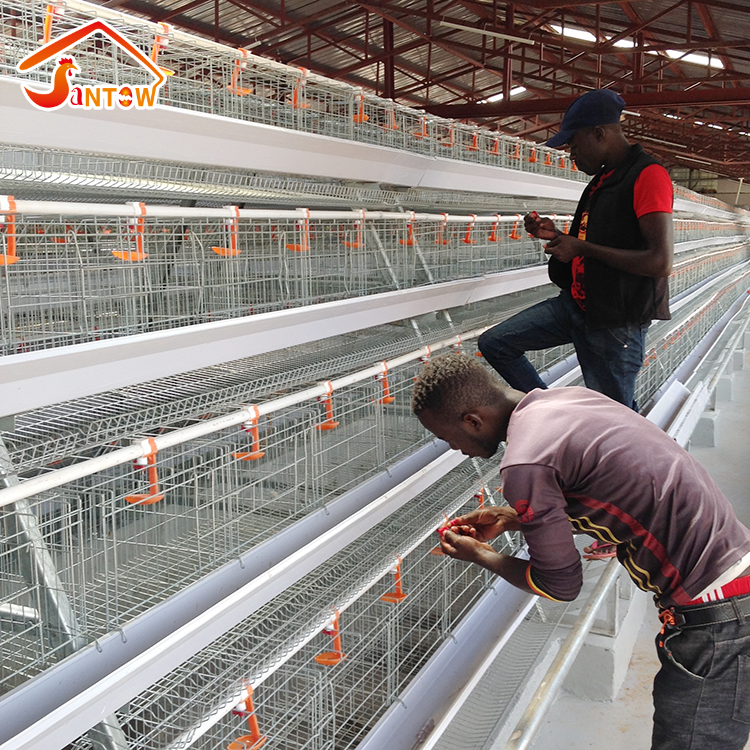

PRODUCT
CONTACT US
ZhengZhou Santow Agro Equipment Co., Ltd
Hotline:+86-371-5598 1030
Fax:+86-371-5598 1030
Phone:+86-187 6889 2838
Mail: sales@santow-agro.com
Coccidiosis & Infectious Choryza in Chicken Farming
There are many forms of coccidiosis, just as Infectious choryza cases are very many in
different farms as well, no matter the location.
Many forms of coccidiosis
1.Coccidiosis is most diagnosed by brown or bloody droppings?
2.There are many forms of coccidiosis.
3.Many confirm coccidiosis at postmortem by the reddish haemorrhages in the different
parts of the intestinal mucosa.but some form of coccidiosis does not present like this.
4.Even with no brown droppings you can have a certain form of coccidiosis.
5.Some drugs can not handle some forms of coccidiosis and for that reason we have alot
of persistent cases.
6.Coccidiosis always Co exist with some bacterial infections like fowl Corella and fowl typhoid etc.
7.ESB 3 handles all forms of coccidiosis at all stages of growth of the birds without any adverse
effects on eggs or growth.
8.In addition it also handles the fowl typhoid and fowl Corella.
9.It has also has 70% sucrose in addition to the magical 30% sulfaclozine
Sodium Monohydrate.
10.No effect on water intake.
Use Esb3 to treat your birds with coccidiosis, fowl typhoid, fowl Corella and get value for your money.
(Please scan QR Code for 720 Factory Panoramic View)

Also Read: Chicken Care:Biosecurity and Health Management
Infectious Choryza
Infectious choryza cases are very many in different farms, no matter the location.
Farmers with birds in the age group of 12 weeks to 16 weeks should consider vaccinating their flocks
against infectious choryza. The vaccine is available in different veterinary pharmacies.
Farmers should always check their birds for infectious choryza signs for example:
1. Swellings around the eyes.
2. Soiled back ( around the base of the neck)
3. Exudate ( mucus) from the eyes.
4. Some may develope difficulty in breathing.
5. Production may reduce by 50%.
Birds showing signs of infectious choryza must be isolated, because the disease spreads so fast
within a day or 2! Good enough all disinfectants can kill this bacteria that causes the disease,
consider treating the affected flock using erythromycin or tyrosin based drugs.
In most cases, the disease may be associated with a viral infection, so need for vitamins , electrolytes
together with antibiotics arises.
